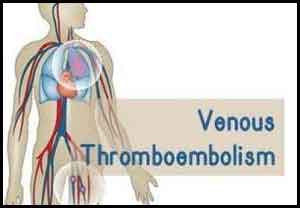- Home
- Editorial
- News
- Practice Guidelines
- Anesthesiology Guidelines
- Cancer Guidelines
- Cardiac Sciences Guidelines
- Critical Care Guidelines
- Dentistry Guidelines
- Dermatology Guidelines
- Diabetes and Endo Guidelines
- Diagnostics Guidelines
- ENT Guidelines
- Featured Practice Guidelines
- Gastroenterology Guidelines
- Geriatrics Guidelines
- Medicine Guidelines
- Nephrology Guidelines
- Neurosciences Guidelines
- Obs and Gynae Guidelines
- Ophthalmology Guidelines
- Orthopaedics Guidelines
- Paediatrics Guidelines
- Psychiatry Guidelines
- Pulmonology Guidelines
- Radiology Guidelines
- Surgery Guidelines
- Urology Guidelines
Acute kidney failure with VTE proves difficult to treat

Researchers from the Walter Reed National Military Medical Center conducted a prospective, observational study to assess the impact that weight and renal function have on venous thromboembolism (VTE) rates among in-patients receiving prophylaxis with low-molecular-weight or unfractionated heparin.
Between September 2009 and 2011, 6599 patients were admitted to the hospital for at least two days. The mean age and body mass index (BMI) were 54.6 and 28.5, respectively. Among those who developed VTE, 165 (71.1%) were diagnosed during admission, 27 (11.7%) within 30 days, and 7.2% between 30 and 90 days after admission.
They concluded that a person's body mass index (BMI) was not related to VTE rates, but renal function did have an impact. Creatinine clearance was not associated with VTE rates when unfractionated heparins or low-molecular weight heparins were given, but patients with acute kidney injury had higher VTE rates, even in the presence of prophylaxis.
"Current unfractionated and low-molecular-weight heparin dosing in the presence of acute kidney injury may not be sufficient to prevent VTE," warns lead researcher Dr. Aaron Holley, "future studies need to address the optimal dosing of heparins in these cases."
Further results from this study will be shared at the CHEST Annual Meeting 2017 in Toronto on Tuesday, October 31, 11:30 AM-11:45 AM at the Metro Toronto Convention Centre, Room 606.
Table 2. Summary of Recommendations Regarding Testing for Thrombophilia.*
Recommendation Do not test at time of VTE event Do not test while patient is receiving anticoagulant therapy Do not test if VTE is provoked by strong risk factors Consider testing Identify goals of testing | Explanation Test at completion of anticoagulant therapy for provoked VTE; for unprovoked VTE, test after treatment for acute event if cessation of anticoagulant therapy is contemplated and test results might change management strategy Test when VKA has been stopped for at least 2 wk, DOAC has been stopped for at least 2 days (preferably longer), and UFH or LMWH for antithrombin levels has been stopped for more than 24 hr Strong risk factors are major trauma, major surgery, immobility, major illness Consider testing in patients in whom VTE occurs at a young age in association with weak provoking factors or a strong family history of VTE or in patients who have recurrent VTE Identify goals in order to aid decision making regarding future VTE prophylaxis, to guide testing of family members (especially regarding risk associated with COC or pregnancy in female family members), and to determine cause (especially for severe VTE, fatal VTE in family members, or VTE in an unusual location); test results alone should not be used for decision making regarding duration of anticoagulant therapy |
For more details click on the following link: http://dx.doi.org/10.1016/j.chest.2017.08.1078

Disclaimer: This site is primarily intended for healthcare professionals. Any content/information on this website does not replace the advice of medical and/or health professionals and should not be construed as medical/diagnostic advice/endorsement or prescription. Use of this site is subject to our terms of use, privacy policy, advertisement policy. © 2020 Minerva Medical Treatment Pvt Ltd